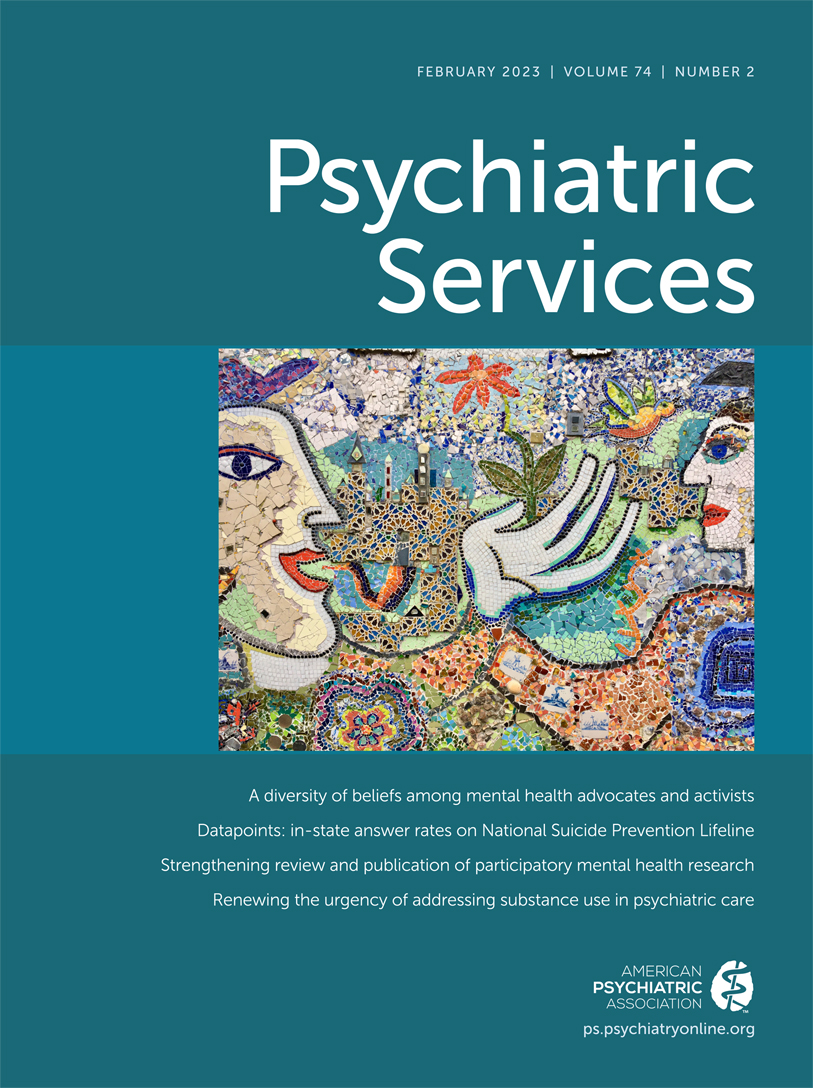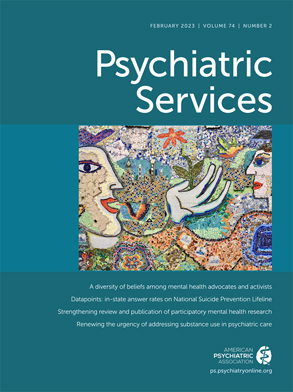Over the past two decades, rates of hepatitis C (HCV) infection have increased nearly sixfold in the United States. The prevalence of HCV infection among U.S. patients with serious mental illness is estimated to be 17.4%, compared with 1% in the general population. Despite this discrepancy, people with severe psychiatric illness are infrequently screened for HCV. Mental health providers could identify and screen this population and facilitate treatment access for those who screen positive. We sought to develop and implement an HCV screening strategy for patients receiving inpatient psychiatric care.
Our study took place from 2019 to 2020 at Zuckerberg San Francisco General Hospital (ZSFGH), a safety-net hospital with several inpatient psychiatry units and a standardized pathway to onsite HCV treatment. Review of electronic health records (EHRs) in March 2019 showed that of the 66 patients admitted to the ZSFGH inpatient psychiatry service that month, HCV status of 61 (92%) was unknown; however, only four (7%) of those 61 patients were screened for HCV during their admission. With these data, and in conjunction with recommendations from a senior inpatient psychiatrist, we set a goal to screen at least 60% of patients during their admission by August 2020.
We used a root-cause approach to analyze barriers to HCV screening on the inpatient psychiatry units. First, we interviewed members of the interdisciplinary care team, including two psychiatrists, one resident, three nurses, one social worker, and one occupational therapist. Responses indicated that the team’s interest in increasing screening for HCV was universal but also that a multitude of challenges hindered screening. These included systemic issues, such as the recent implementation of a new EHR and a lack of treatment coordination, as well as provider concerns, such as obtaining patient informed consent and unfamiliarity with ZSFGH’s standardized referral-to-treatment process.
Insights gleaned from the interviews guided the development of surveys, completed by 35 inpatient psychiatry providers and nine inpatients, which highlighted institutional, service-level, and individual barriers to providing HCV screening. At an institutional level, uncertainty surrounding care coordination and access to HCV treatment decreased provider confidence in referring patients to treatment and lowered motivation to screen. At a service level, HCV screening was not routinely performed or integrated into the standard clinical workflow on inpatient psychiatry units. Among individual providers, patient refusal was cited as a major barrier. Data from patient surveys confirmed some reluctance to undergo both HCV screening and blood draws.
Review of interview and survey data led to piloting several interventions to achieve the desired 60% screening rate. We created two visual resources: one, a flowchart for obtaining patient informed consent for HCV screening, and the other, a sign indicating the types of patients who needed screening and the steps for treatment referral. These signs were sent to the inpatient psychiatry team in May 2020 and posted throughout the inpatient psychiatry unit. Starting in June 2020, monthly e-mails to the interdisciplinary care team reported how many patients were screened for HCV that month compared with the prior month.
For June, July, and August 2020, the unit screened 18% (N=6 of 34), 16% (N=7 of 44), and 29% (N=10 of 34) of eligible inpatients, respectively. Although an initial goal of 60% was set, a combination of preconceived barriers, such as interdisciplinary team adjustment to implementation of a new EHR, and the intrusion of the COVID-19 pandemic likely limited the effects of our interventions. A recent review of the June 2022 discharges showed a markedly increased HCV screening rate of eligible patients (43%, N=9 of 21). This 2-year increase is unlikely due to chance alone and suggests the durability of our intervention. Future opportunities to enhance HCV screening rates include interviewing providers who performed the most or the fewest screenings to better understand their experiences, considering adding HCV screening to the panel of laboratory tests ordered at admission, and exploring workflow and systems changes that could streamline screening and address barriers to treatment and follow-up.
Our study led to the development of an effective, low-cost approach for improving HCV screening in inpatient psychiatry services that can be easily replicated in similar clinical settings. Compared with the general population, patients with psychiatric illness are disproportionately affected by HCV, and screening is an essential step in ensuring that these individuals receive treatment to prevent development of a devitalizing disease.

